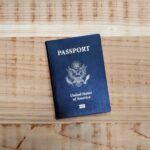Welcome to FindBiometrics’ digest of identity industry news. Here’s what you need to know about the world of digital identity and biometrics today:

Regulatory Developments
The Biden administration has announced a so-called “AI Bill of Rights”, though it is a white paper, and not a piece of legislation. Credited to the Office of Science and Technology Policy (OSTP), the document broadly calls for the conscientious development and deployment of AI technologies like facial recognition, arguing that citizens should have control over their data and that AI systems should not be discriminatory. Marc Rotenberg, the head of the Center for AI and Digital Policy, told MIT Technology Review that the document is “clearly a starting point” for the AI ethics discussion.
The Canadian House of Commons ethics committee has published a new report urging the federal government to put a moratorium on the use of facial recognition technology by police, unless law enforcement agencies have obtained authorization to do so from a judge or the country’s privacy commissioner. The report suggests that the facial recognition pause should be in place until an explicit legislation framework is created to govern the technology’s use.
Industry Events
The 2022 Identity Week trade show begins today. The two-day, in-person event is taking place in Washington, DC, at the Walter E. Washington Convention Center. Organizers say that over 200 exhibitors are taking part, and that the event will see over 3,000 attendees. FindBiometrics is on hand.
Clearview
Reporting live from Identity Week, FindBiometrics’ Doug OGorden has learned that Clearview AI’s database has now reached the milestone of 30 billion images. The news comes after the controversial facial recognition company’s announcements that it had reached 10 billion images in February of this year, and then 20 billion near the end of March. It remains unclear how many distinct individuals have face images logged in the Clearview system. Given that the global population is estimated to be over 7.7 billion, it’s plausible that everyone whose image has appeared on the internet is now in Clearview’s database.
Mobile ID
Government authorities in France are embarking on a trial of a virtual, mobile-based health card for citizens. The mobile carte vitale is now available to interested residents in the regions of Bas-Rhin, Loire-Atlantique, Puy-de-Dôme, Saône-et-Loire, Sarthe, Seine-Maritime, Rhône, and Alpes-Maritimes; and authorities are aiming to expand its availability across the entire country next year. Meanwhile, plans for a biometric version of the physical health card appear to have been shelved over cost concerns. Read the full story on Mobile ID World.
Certifications
iProov has received SOC (System and Organization Controls) 2 Type II certification for its biometric onboarding platform. The widely recognized certification offers assurance that a given service provider securely manages non-financial data. “This certification assures our customers, partners and their users that we are continuously monitoring and implementing robust controls over our security, processing integrity and privacy practices,” commented iProov CEO Andrew Bud.
Airport Biometrics
Australia’s Perth Airport is about to begin trialing biometric boarding in partnership with Singapore Airlines. The pilot comes after Perth Airport’s deployment of new self-check-in and Auto Bag Drop kiosks, all of which support biometric passenger processing. Travelers who volunteer for the pilot will be able create a biometric token based on their face at check-in, and to then use the Auto Bag Drop units and board their planes without having to present their boarding passes. The biometric technology is being provided by Amadeus.
Selfie Onboarding
Air Bank, a relatively new and fast-growing bank in the Czech Republic, is now using biometric onboarding technology from Innovatrics. The latter’s Digital Onboarding Toolkit has been integrated into Air Bank’s “My Air” mobile app, enabling end users to verify their identity by uploading a selfie photo and images of their official identity documents. Read our full story.
Product Launches
Paravision has announced multiple new products as part of its biometrics and computer vision portfolio. Paravision Search is a new face matching system designed for use against very large databases with hundreds of millions of records. Paravision’s 2D RGB Presentation Attack Detection, meanwhile, is pretty much what it sounds like, and designed for server-side or mobile deployments. And the latest version of Paravision’s video streaming solution, Streaming 7, now supports person and vehicle detection capabilities.
Putin’s Prognosis
Aculab, a UK-based provider of telecommunications solutions and face and voice biometrics technologies, claims that it has used an AI system to determine that Russian President Vladimir Putin has Parkinson’s disease. The system was used to analyze voice biometrics from 2,000 audio segments from Putin speeches spanning 2007 to the spring of this year. As The MK Citizen reports, Aculab’s system was trained on 30,000 audio samples from nine countries, and tested on 14,500 users. Aculab says its system has an accuracy of 80 percent.
–
October 4, 2022 – by Alex Perala
Want to get the identity news digest early? Become a member and get the digest sent straight to your inbox, before it’s published on FindBiometrics:








Follow Us